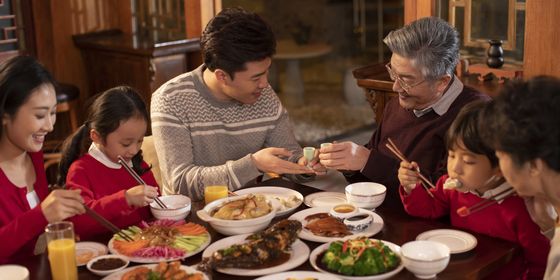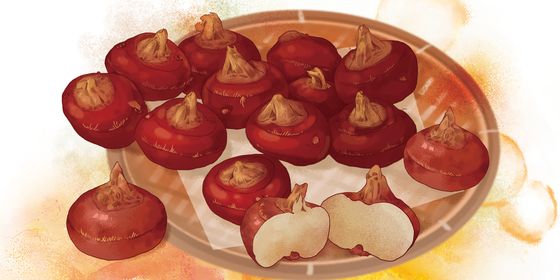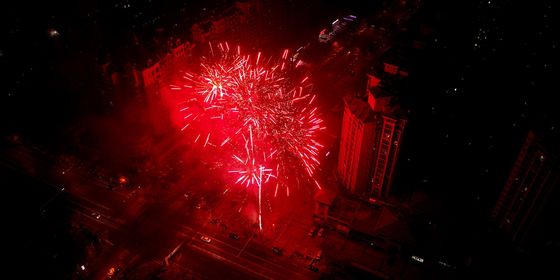Northern Chinese have been lying about what foods the nation eats during the holidays. We southerners have had enough
The opinions expressed are the author’s own, and not necessarily held by TWOC or The Commercial Press
Another Spring Festival has come and gone, and with it, the enactment of a decades-long oppression by Chinese media against the rich culinary traditions of one-half of this nation in order to hype one dish: the jiaozi, or dumpling, the blandest, most overrated, and least imaginative Chinese food of all.
But wait, you say—the Chinese love jiaozi! My Chinese teacher says it’s the default food item for all Chinese festivals, and so does TWOC! Every year on the CCTV Spring Festival Gala, they show montages of well-scrubbed yet humble families tearfully reuniting over steaming plates of white dough-wrapped foods, and as the hosts count down midnight, they say, “Friends, only x hours until it’s time for you and your family to put your jiaozi to boil!”
I’m afraid you’ve bought into the great jiaozi conspiracy. If you’ll notice, the TWOC piece clearly states that the tradition of chowing down jiaozi during every festival is a northern Chinese custom, and gives several examples of what southerners eat instead. And yes, I did insist on the author, a northerner, including all of that, thus demonstrating the importance of diversity in the workplace.
Obviously, they don’t have such checks and balances over at CCTV. The question, “Is the Spring Festival Gala perpetrating cultural imperialism over southern China?” debated each year among netizens of the forgotten half of the country the morning after the the gala. Because why would we limit ourselves to eating mashed-up meat and vegetable lumps (which, we southerners sneer, is what you do to food during those harsh northern winters to hide how little of it you have) on the one day of the year when we’re supposed to show off the plentiful state of our larders?
Nonetheless, it’s a deception that runs deep in China’s national psyche; southern netizens complain each year that some of their own family (see: my mother) have adopted jiaozi-eating where none was eaten before, usually after watching too many wholesome Gala family-reunion clips. Presumably, those scenes are supposed to guilt you about not spending enough time with your family, but have really set off a half-nationwide existential panic about whether we’re really Chinese.
Even when most northerners theoretically know we don’t enjoy wheat-based diet—such as when you raise certain objections to your colleague when they propose to “write a story on why ‘the Chinese’ love dumpling”—they innocently follow with, “yeah, but don’t you still eat it during the New Year?” or “right, you eat niangao or tangyuan for your holidays, which are basically like holiday jiaozi, only rice-based, don’t you think?”
No!
It’s not really clear how this myth of the dumpling-obsessed Chinese got started, other than the fact that CCTV is headquartered in the north, in Beijing. Most of the Gala’s programming, such as the comedic sketches and cross-talk, is influenced by northern folk culture and dominated by northern entertainers, especially those from Beijing, Shandong, and Dongbei.
Moreover, the various spring-welcoming rites of each region, ethnicity, and family complicate the appearance of national unity and the export of a non-challenging version of Chinese culture for soft power: “The Chinese—an ancient, Confucius-worshiping, chopstick-wielding, dough-wrapped-ground-meat-eating race!”
But I say it’s time we southerners took a stand against the hegemony of jiaozi. First of all, the idea that the Chinese, of all people, would just pick one food item to eat repeatedly every holiday is ludicrous. And to think that, of all food items available to us, we’d pick indeterminate meats and vegetables in soggy dough is, frankly, just offensive. Eight major culinary traditions, classic tomes of cookery dating back to 1000 BCE, a geography that spans the northern tundra to tropical beaches, rain forests to the Central Asian steppes—and they want dumplings to be known as the heart of our gastronomical tradition?
You’re even required to dip it in soy sauce or vinegar for flavor, for Confucius’ sakes.
Let’s cast off the fetters of the jiaozi tyranny! From Jiangnan to Chongqing to the karst-covered lands of Guangxi, bring out your fish and let your other traditions be known! Fujian, let the world know that in southern parts of your province, you traditionally dismissed employees by inviting them all to a New Year banquet and serving chicken with its head pointed at the unlucky person who won’t be joining you in the coming year! Jiangxi, never be ashamed of your glistening rice noodles and fried rice cakes and sweet grain-packed 八宝饭 (bābǎo fàn), or“eight-treasure rice.”
Yangtze River Delta, proudly display your soups and shrimp and braised meats, unless you’re in Shanghai, in which case some people don’t have the soup, and that’s totally okay. We also sometimes eat dumplings in the south, but as a side dish within a delectable New Year spread, or a few morsels in a dainty snack plate to go with our tea and the jiaozi‘s other dough-wrapped brethren, the xiaolongbao or wontons, because we’re not barbarians and have so many more creative foods to sample.
Look, we’re not asking for a whole lot: just the recognition that for the Lunar New Year, or any other festival, you don’t have to repeatedly eat jiaozi or any single dish. The holidays are simply about eating good food, and more of it than usual, which we’re pretty sure is a non-discriminatory message the whole country can get behind.












